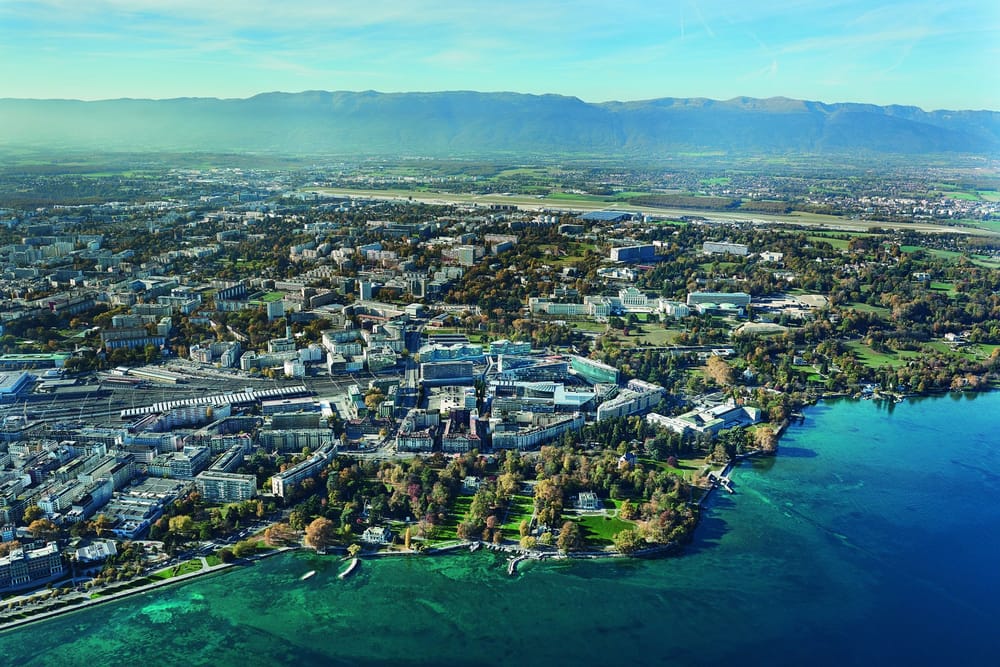By Peter Maurer and Mohamed Mahmoud Mohamedou
In the aftermath of the Cold War, there was hope that reworking the international system along new parameters could become a realistic option. With multilateralism at its core, that new framework centred on the notions of peacebuilding, human security and norm-driven diplomacy. The Millennium Development Goals (MDGs, soon to become the Sustainable Development Goals or SDGs), the Agenda for Peace and the concept of global public goods were but three referentials of a reinvigorated international diplomacy framework.
The subsequent rise of authoritarianism came to question the notion of diplomacy in the service of globalisation based on common values. Armed conflicts, terrorism, the war on terrorism and the insecurity that followed further weakened the approach born throughout the 1990s. Instead, an international loss of trust fuelled unilateralism, discord and, consequently, the shrinking of diplomacy to a simple instrument in pursuit of classical state interests.
Unending wars and the militarisation of international affairs pushed diplomacy to a secondary role, minimising its influence and, at times, questioning its legitimacy. Paradoxically, when the world needed it most, diplomacy was made to look passé. Talk of the end of diplomacy became fashionable, and this came to the fore when the COVID-19 pandemic turned out to be dominated by inward-looking ‘technocratic nationalism.’
Diplomacy is not limited to conflict resolution and security challenges. In a world dominated by transnational interactions and influences and deeply impacted by digital transformation in all walks of life, diplomacy has become a fluid and plural activity.
If, however, diplomacy must indeed be informed by expertise, science, technology and citizen action, it has, first and foremost, to remain a layered integrator of international interaction. Diplomacy is alive and well, but it necessitates adaptation and reinvention. Diplomacy is not limited to conflict resolution and security challenges. In a world dominated by transnational interactions and influences and deeply impacted by digital transformation in all walks of life, diplomacy has become a fluid and plural activity.
That being as it may, it is not so much the proliferation of domains in which diplomacy materialises but, rather, a new outlook on the centrality of negotiation, intelligent consensus-driven decision-making processes on issues of our time, and the recognition of multiple stakeholders in contemporary international affairs. Today, such rethinking is crucial amidst a global scene characterised by uncertainty, complexity, fragmentation, instability, speed and unpredictability.
Diplomacy is alive and well but it necessitates adaptation and reinvention
Reinvented diplomacy will allow for a richer understanding of new questions and innovative approaches to older and persistent issues. Importantly, it will also help relocate diplomats to the centre of international activity rather than them being “mere” agents of the state. Instead, the new diplomat can become an informed and self-capacitating vector of international interaction, one able to capitalise on opportunities and act for the nurturing of an interdependent international society. This is particularly important for common norm-creation and collective international agenda-setting.
If the state remains the privileged primus inter pares actor of the articulation of a nation’s interests, the inclusion of different societal components remains for its part challenging in light of the fragmentation of political action.
Similarly, the rebooting of diplomacy legitimises the positive implication of non-state actors (in an activity still eminently driven by the state), notably civil society and the private sector. Crafting a new diplomatic mode means valuing and giving shape to such widened professionalisation, and welcoming creativity alongside institutional continuity. A century or so after the birth of classical international relations, the traditional language and practice of diplomacy are logically at the crossroads, in need – generationally and qualitatively – of renewal ushered by the internationalisation of society. If the state remains the privileged primus inter pares actor of the articulation of a nation’s interests, the inclusion of different societal components remains for its part challenging in light of the fragmentation of political action.
The more separation of politics, security, business, culture and social affairs will be in contradiction with the dominant hybrid reality around the world, the more diplomacy will have to “lead from the middle”, and position itself as a dialogue- and action-facilitator. In that regard, digital transformation will be a key dimension of this evolution as it is already fundamentally altering the very grammar of diplomacy playing out across a multitude of platforms between public and private actors, officialdom and the corporate world, and professionals and private citizens.
Ultimately, diplomacy will always remain a field of activity measured in longue durée. Modern challenges require nonetheless accelerated action factoring in the volatility of alliance, as well as, more often than not, their unreadability. Such continuous intensified engagement is the essence of those new spaces of diplomacy – markers heralding an approach wherein negotiation is changing contours under the influence of fragmented interests, multiple actors display contested legitimacy, and wherein hybridity presides over the back-and-forth between public and private actions.
About the Authors
Peter Maurer is the former President of the International Committee of the Red Cross.
Mohamed Mahmoud Mohamedou is deputy director of the Geneva Graduate Institute and Professor of International History and Politics.
Disclaimer
The opinions expressed in this publication are those of the authors. They do not purport to reflect the opinions or views of the Geneva Policy Outlook or its partner organisations.





